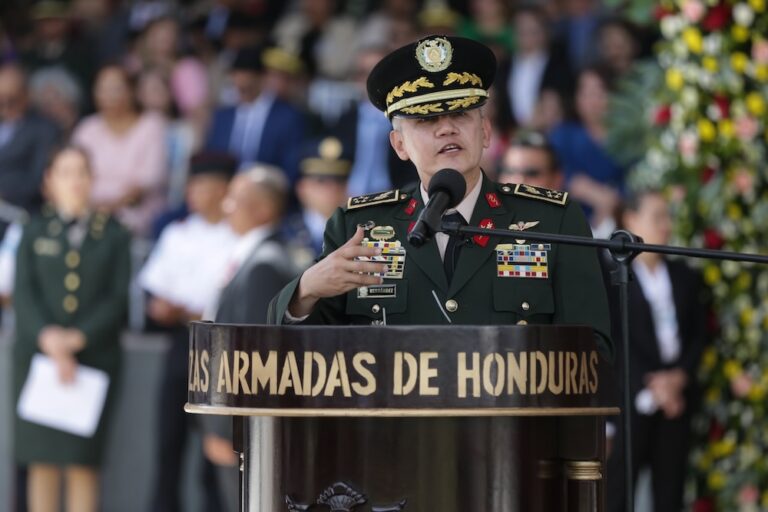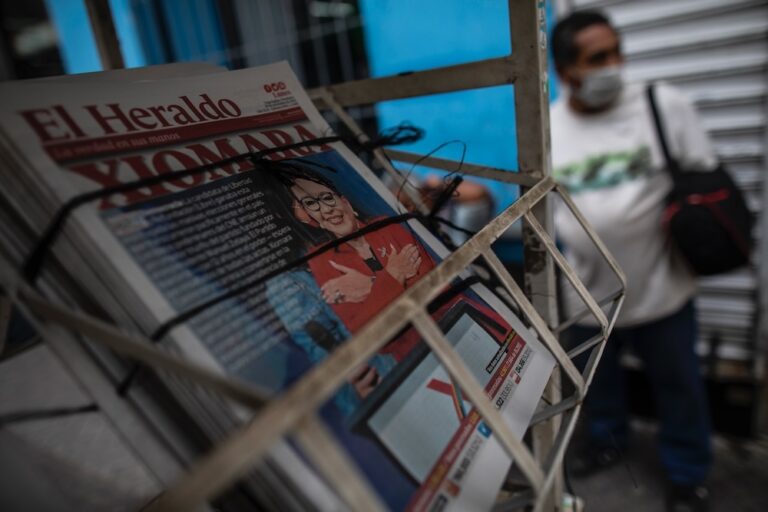"The struggle against impunity requires protection for minority media and their representatives," RSF reiterated.
(RSF/IFEX) – Threats from local authorities and security forces, which tried to take over its management, forced a local radio station in Honduras to temporarily stop broadcasting on 14 January 2011.
The station, Radio Faluma Bimetu (Radio Coco Dulce in Spanish) belongs to the Honduran community of African origin (Garifuna) of Triunfo de la Cruz.
A delegation from the municipality of Tela, backed by police officers, turned up at the community on 12 January to impose a new, hand-picked board of management (patronato). The community of Triunfo de la Cruz had already planned to hold a vote on 28 January to designate its future representatives. When the community refused to accede to the delegation’s demands, the visitors threatened to burn the station down.
The threat was a reminder of the arson attack that destroyed the station on 6 January 2010. With the support of the World Association of Community Radio Broadcasters (AMARC) and International Media Support (IMS), Reporters Without Borders contributed to the rebuilding of Radio Faluma Bimetu.
The Garifuna community has long been opposed to certain construction projects in the Atlantic region and has made its hostility clear through its small local media. The attacks on Radio Faluma Bimetu have intensified since the coup d’état of 28 June 2009. Alfredo López, one of its leading figures, was held by the army and police on 12 August 2009.
All social and community movements and those expressing backing for the Garifuna community have experienced the same treatment, in disregard of the American Human Rights Convention and the injunctions of the Inter-American Commission on Human Rights (IACHR).
For example, on 5 January 2011, two men dressed as electricity service technicians broke into the offices of the Council of Popular and Indigenous Organizations of Honduras (Copinh) at La Esperanza (northwest of the capital, Tegucigalpa). They threatened those present and, claiming to be acting under a contract with the government of Honduras, cut off power to the building. The community stations Guarajambala and La Voz Lenca immediately went off the air.
In the region of Zacate Grande, in southern Honduras, there is ongoing harassment of the local radio station of the same name and of the community on which it depends as a result of a conflict with the agro-industrial magnate Miguel Facussé Barjum.
“The struggle against impunity involves not only light being shed on the 10 killings of journalists in 2010, as the government recently announced, while the results are slow to emerge, Reporters Without Borders said on 18 January 2011. “It also requires a real protection for minority media and their representatives, in particular the victims of reprisals linked to the coup d’état. The signals of sabotaged community radio stations must be restored without delay.”


